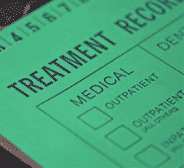
A Health Crisis
- By Karina Sanchez
- Oct 02, 2007
Those in the security industry know that protection doesn't just stop with police officers and first responders. Security, privacy and confidentiality are important issues in several applications. And healthcare facilities are no exception. Since 1996, when HIPAA, the Health Insurance Portability and Accountability Act, was established, healthcare facilities have been faced with even greater challenges of protecting patients' information. In essence, HIPAA is designed to address portability, confidentiality and information technology in a healthcare setting.
"What HIPAA did was create awareness that you need to start paying attention not to just security, but confidentiality, as well," said Robert Seliger, chairman and CEO of Sentillion, provider of products designed to protect the privacy of patient records and meet healthcare regulatory requirements.
When HIPAA was enacted, healthcare organizations were already using computers for back-office functions, and the new act demanded a change in organizational processes.
"Computers were everywhere, and hospitals were confronted with the need to protect those systems. Add world happenings, and spammers and hackers, and you create a recipe for awareness," Seliger said.
That's exactly what prompted healthcare associations across the country to take a hard look at how they were managing their business and how security, confidentiality and portability could be improved.
A Healthy Case
Lincoln, Neb.-based BryanLGH is a not-for-profit, locally owned healthcare organization with two acute-care facilities and several outpatient clinics, including cardiology, orthopedics, trauma, neuroscience, mental health, women's health and oncology. A statewide network allows BryanLGH to provide sophisticated mobile diagnostic treatment and services to citizens throughout the region. The organization restructured its data processes to comply with the new act.
"When HIPAA was initiated, the bar was raised in terms of the requirement of hospitals to protect the privacy and confidentiality of patient information," said BryanLGH CIO Rich Marreel. "HIPAA had a lot to do with making privacy and security a higher priority than it was before."
That, along with the JACO, the Joint Commission on hospital accreditation, which offers standards on security and confidentiality for hospitals, highlighted the need for hospitals to take charge of their data.
The first steps BryanLGH took were to review all policies and procedures it had in place. Instead of housing paper charts, it moved all of that information into electronic medical records for all patients dating back to 2000. For patients seen before that, records were transported to microfilm. With this change, the possibility of transporting hard-copy records outside of the organization is less likely.
"It helps us contain the patient information, who views it and how it's distributed. The downside is that it is electronically available, so it's susceptible to being hacked into," Marreel said. "If someone's careless with their authentication, then that information could become available to someone without the proper need to know. You always have that downside."
In general, Marreel notes, keeping the records electronically has helped the organization gain more control over patients' information, how it's distributed and accessed.
Worries About Authentication
BryanLGH has employed a single sign on product from Sentillion that helps it keep track of who's accessing what and why. The organization has done away with paper files completely, which makes its electronic files that much more important. Marreel admits to even having a security officer whose sole responsibility is to investigate any possibilities of leakage of patient information, look for holes in security and to make sure those are kept plugged up.
And one part of the security officer's job is to make sure users aren't exposing their usernames and passwords.
"But that's improved dramatically within the past few years. It used to be common practice to see people with various usernames and passwords taped somewhere," Marreel said.
Single sign on solutions are designed to allow the user to sign on once to all the applications they have rights to, eliminating the need to re-authenticate for each separate application. In addition, because of the technology's efficiency and ease of use, it has become favored among those in the healthcare industry.
"Physicians like it because they go from unit to unit, floor to floor, so they need access to their applications at each of those places," Marreel said. "Anything we can do for they physicians to make that process easier, while at the same time maintain appropriate privacy and security, we try to do it."
But industry experts have found a new breed of threats targeting the privacy and security of patients that steps away from the confines of a healthcare organization and targets patients themselves.
For Sale: Healthcare Identities
Patients are worried about keeping their medical records private, including any type of identifiable information that may go along with it<\m>Social Security number, blood type, birth date and more. But some in the industry are seeing that people aren't just targeting identities, but healthcare records, as well.
"People are stealing healthcare identities in order to receive free healthcare," Seliger said.
And due to rising healthcare costs and higher insurance rates, this crime is becoming more and more of a problem.
"I've heard of it, and fortunately we haven't had that kind of experience, but it's something that can happen at a lot of different points along the way," Marreel said.
Healthcare identities can be stolen at hospitals, in wallets, from family members, from insurance insiders and more. And it's important to keep that information as safe from tampering as possible because, as Seliger notes, it's something that will be more prevalent in the near future.
"You can see the perfect storm brewing to where this is going to become a larger problem," Selinger said.
There are regulations and standards out there to protect patients' information, healthcare organizations strive to comply with such standards, and private companies create technologies to help people protect themselves in the process. It's a trust in a healthy dose of security that can help the threats go down.